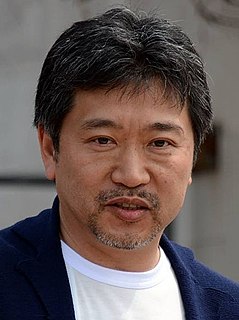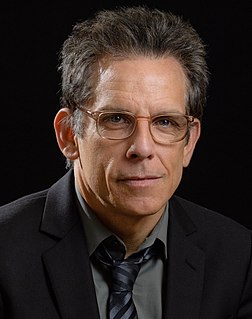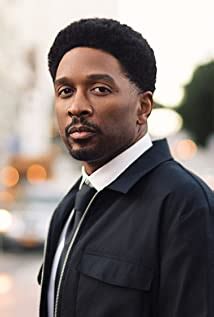A Quote by Hirokazu Koreeda
I don't believe in making movies to cater to a foreign audience. You never know what the reaction is going to be anyhow. At the time I made Maborosi, the Japanese movies getting any foreign attention were all period dramas and seemed to be about some representative element of Japanese life, and my movie was contemporary movie about one specific woman trying to understand her husband's suicide.
Related Quotes
But then foreign critics right away made sweeping comparisons to haiku, noh theater, and directors like Ozu, as if the movie were somehow representative of Japan - which was, well, not what I was after. Similarly, with After Life, I deliberately set out to make a movie that was unlike what I imagined the foreign conception of Japan to be, and I figured non-Japanese wouldn't find it interesting at all.
But then male directors also have a hard time getting their movies made... not as hard as women but it's a tough time for any movie this size. And that particular movie [The Hurt Locker] was so specific. It couldn't hurt, of course, and I'm really glad for her, but I don't know how much it will change things, if at all. The film industry is still so sexist.
Pretty early on in making the first movie I realized that this is what I wanted to do. I felt like by that time I just found my niche, like this is what I was supposed to be doing. So I completely submerged myself into the world of watching movies, making my own movies, buying video cameras and lights. When I wasn't making a movie, I was making my own movies. When I wasn't making movies, I was watching movies. I was going back and studying film and looking back at guys that were perceived as great guys that I can identify with. It just became my life.
Well, this movie I've been working on for a while. I had the idea for the movie like twenty years ago when I was doing 'Empire of the Sun' in 1987 because at that time that's when all these Vietnam movies were being made and my friends and I were going on auditions for these Vietnam movies and my friends were getting them and going away to fake boot camps.
I've begun to believe more and more that movies are all about transitions, that the key to making good movies is to pay attention to the transition between scenes. And not just how you get from one scene to the next, but where you leave a scene and where you come into a new scene. Those are some of the most important decisions that you make. It can be the difference between a movie that works and a movie that doesn't.
When I'm in the process of making a movie I'm not thinking about the finished result, and whether people have to see it once or more than once, and what the reaction to it will be. I just make it, and then I live with the consequences, some of which may not be as pleasant as I'd like! I know one thing, however. Many viewers may come out of the theater not satisfied, but they won't be able to forget the movie. I know they'll be talking about it during their next dinner. I want them to be a little restless about my movies, and keep trying to find something in them.
I get an opportunity to communicate with the audience about the movie that I've made. I get the chance to bring attention to the film that I've made. I care a lot about the movies that I make. I want them to reach an audience, and I want them to be successful. I promote nearly everything that I do, unless I've got some bad taste in my mouth.
I've ended up as a filmmaker who really loves the movie part of movies. That time in my life was a big influence on the kind of movies that I ended up making. I always think I'm going to make a movie that's gritty and real, but then I make a movie that's like an opera. I fight it at first and then that's just the way it is.




































